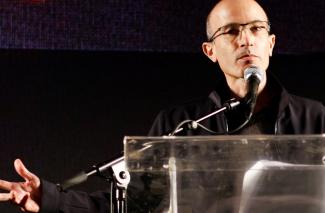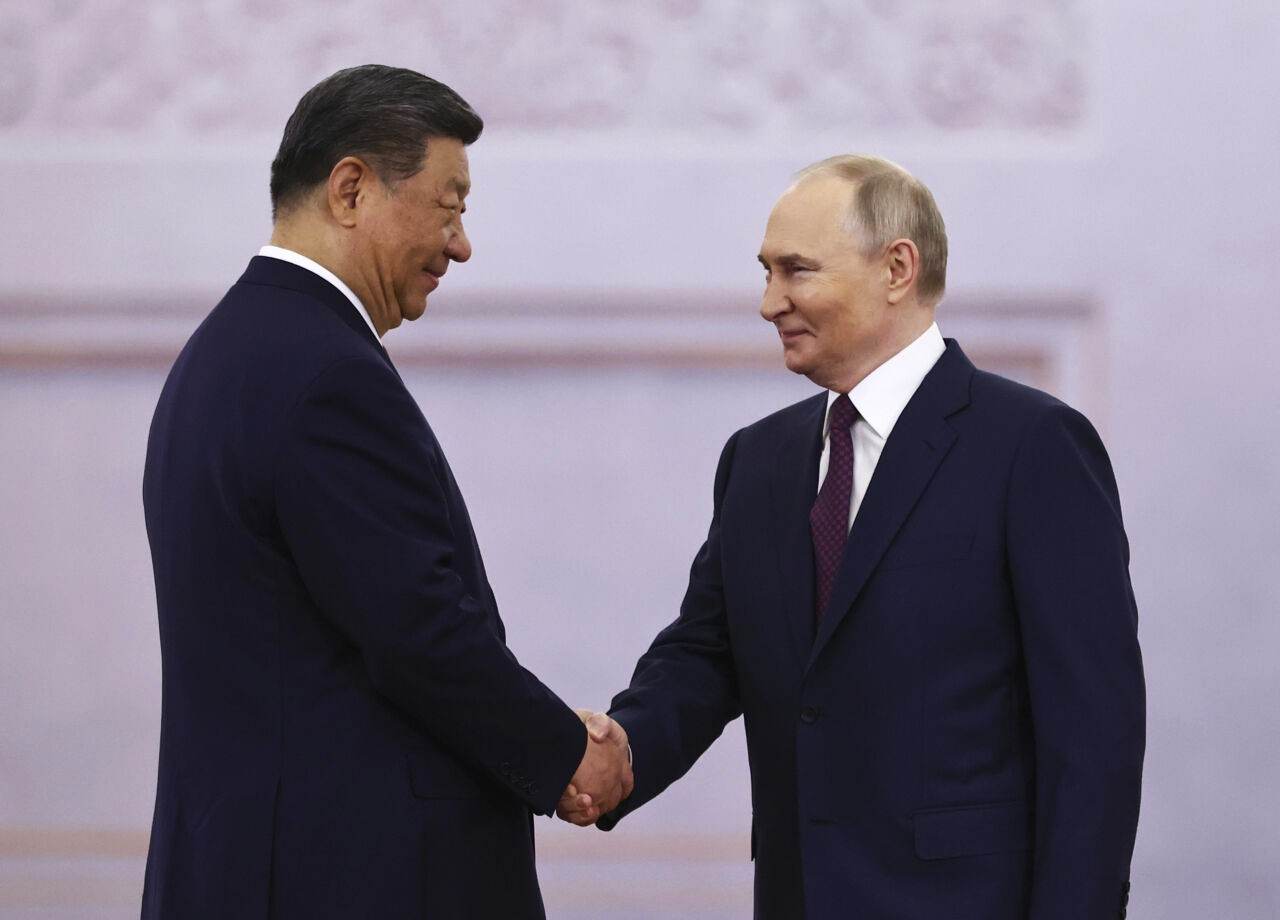Middle East
Jewish voices assess Israel’s current crisis

My message to Benjamin Netanyahu: stop your coup or we’ll stop the country
History is full of dictatorships established by people who first came to power through legal means. It’s the oldest trick in the book: first you use the law to gain power, then you use your power to distort the law. When examined together, the laws this government is currently legislating have one simple meaning (and you don’t need a PhD in law to get it): if these laws are passed, the government will have the power to completely destroy our freedom.
Sixty-one members of Knesset (Israel’s parliament, with 120 members, D+C/E+Z) could pass any racist, oppressive and anti-democratic law they think of; 61 members of Knesset could also change the electoral system, to stop us from replacing the regime. When we ask the leaders of this coup what will keep the power of the government in check under the new regime, and what will protect basic human rights, they only have one answer: “trust us”.
Prime Minister Netanyahu, Justice Minister Levin, MK (member of the Knesset, D+C/E+Z) Rothman, chair of the constitution committee, we do not trust you! You’re tearing to shreds the contract that has somehow held our society together for 75 years, and then you expect us to trust you?
We don’t trust you, because we know very well what you want. You want unlimited power. You want to shut us up and to tell us how to live, what to eat, what to wear, what to think and even who to love. Yuval Noah Harari, The Guardian
Be prepared for the end of Israel as we know it
Remember, Israel has no second chamber and no written constitution. As things stand, if an Israeli government, which by definition dominates the Knesset, wants to do something, the only body that can stand in its way is the Supreme Court. And now Bibi wants to gut it.
In practice, it means that Netanyahu or any future PM would rule Israel with unrestrained power. It would be the tyranny of the majority, as expressed by 61 seats in a 120-member Knesset (…). Sometimes the minority will be the obvious one, Israel’s Arab citizens, but sometimes it will mean those on the losing side of a contested question. In a democracy, everybody is in the minority sometime. (...)
For decades, those who opposed the post-1967 occupation warned that it would inevitably corrode the occupier, that Israel could not disregard democracy on one side of the Green Line and expect to maintain it indefinitely on the other. Eventually, the malignancy would spread across that ever-fading boundary. That moment has now come. Jonathan Freedland, The JC (Jewish Chronicle, based in London)
Israel has angered its closest supporters
Prime Minister Benjamin Netanyahu’s assault on the independence of Israel’s judiciary has provoked mass demonstrations, dire warnings from the business community and words of caution from the Biden administration and pro-Israel members of Congress. This level of opposition is unusual. But it is mild compared with the angry response to mob violence in the West Bank.
“A rampage by Israeli settlers after a Palestinian gunman killed two Israelis in the occupied West Bank has exacerbated fears that violence in the territory might spiral out of control,” the Financial Times reported.
Netanyahu sounded weirdly sympathetic toward the rioters, much as President Donald Trump sounded when talking to the American insurgents on Jan. 6, 2021. “I ask – even when the blood is boiling – not to take the law into one’s hands,” Netanyahu tweeted. As of this writing, no one has been detained for prosecution. (…)
The message from the executive vice president of the Orthodox Union, among Israel’s most loyal defenders, was bracing: “How can such a thing happen?” Rabbi Moshe Hauer wrote. “How could it come to this, that Jewish young men should ransack and burn homes and cars?” While empathizing with the “anguish” over the killings of two Israelis, the statement reiterated that “we cannot understand or accept this.” And in an extraordinary rebuke of Netanyahu, Hauer continued: “Attacking a village does not deserve to be called ‘taking the law into your own hands.’ This is not the law; this is undisciplined and random fury.”
How could it come to this? These things happen when a right-wing government sends a consistent message of sympathy for the country’s most radical elements. Jennifer Rubin, The Washington Post
You can’t save democracy in a Jewish State
For most of the Palestinians under Israeli control – those in the West Bank and Gaza Strip – Israel is not a democracy. It’s not a democracy because Palestinians in the Occupied Territories can’t vote for the government that dominates their lives. (…) They can complain to the Palestinian Authority. But the PA is a subcontractor, not a state. Like other Palestinians, its officials need Israeli permission even to leave the West Bank. In Gaza, too, Israel determines, with help from Egypt, which people and products enter and exit. And Gaza’s residents, who live in what Human Rights Watch calls “an open-air prison,” can’t vote out the Israeli officials who hold the key. (…)
In 2009 the Palestinian Knesset member Ahmad Tibi quipped that Israel was indeed “Jewish and democratic: Democratic toward Jews and Jewish toward Arabs.” To many liberal Zionists, that might sound churlish. After all, Mr. Tibi has now served in Israel’s Parliament for almost 25 years. But he understands that the Jewish state contains a deep structure that systematically denies Palestinians legal equality, whether they are citizens or not. (…)
This helps explain why Palestinians comprise more than 20 percent of Israel’s citizens but Palestinian municipalities, according to a 2017 report by a variety of Palestinian and Israeli human rights groups, encompass less than three percent of Israel’s land. In 2003, an Israeli government commission found that “many Arab towns and villages were surrounded by land designated for purposes such as security zones, Jewish regional councils, national parks and nature reserves or highways, which prevent or impede the possibility of their expansion.” Unable to gain permission, many Palestinian citizens build homes illegally – which are therefore subject to government demolition. (…)
Some Jews may worry that by advocating genuine liberal democracy – and thus exposing themselves to accusations of anti-Zionism – Mr. Netanyahu’s critics will marginalize themselves. But if they widen their vision they’ll see that the opposite is true. By including Palestinians as full partners, Israel’s democracy movement will discover a vast reservoir of new allies and develop a far clearer moral voice. Ultimately, a movement premised on ethnocracy cannot successfully defend the rule of law. Only a movement for equality can. Peter Beinart, The New York Times
American Jews, you have to choose sides on Israel
The interests of American Jews and Israel have been diverging for many years, but it’s been papered over. Up until the early 2000s – as Israel was focused on absorbing Jews from Russia and Ethiopia with the help of American Jewry, pursuing the Oslo peace process with the help of American presidents and launching start-ups with the help of American investors – the interests between the two communities seemed to be generally aligned. (…)
Under Netanyahu, Israel’s governments sought every way possible to avoid the peace process with the Palestinians and used every opportunity possible to demonize Palestinian leader Mahmoud Abbas, even though Netanyahu knew that for years Abbas’s Palestinian Authority was providing essential security cooperation with Israel in the West Bank.
Netanyahu and his team also dismissed liberal American Jews, viewing them as a dying breed, intermarrying their way to irrelevance. Netanyahu and his allies have instead focused their energies on building support for Israel with Republicans and their evangelical base.
Still, the leaders of the major American Jewish institutions worked hard to deny the implicit contempt that Netanyahu manifested toward them, putting out pablum statements about the need to respect Israel’s democratic process and judge Israel’s government “on actions” – as if Netanyahu’s appointment of two ex-convicts and nationalist, messianic zealots to key cabinet posts was not worthy of condemnation.
But as Netanyahu’s latest government has pressed ahead with its attempt to crush the independence of the Israeli judiciary, splitting Israeli society, American Jewish leaders now have no choice but to choose sides. Thomas Friedman, The New York Times
Correction: 17 March 2023. We apologise for originally not spelling Jonathan Freedland's name correctly.














